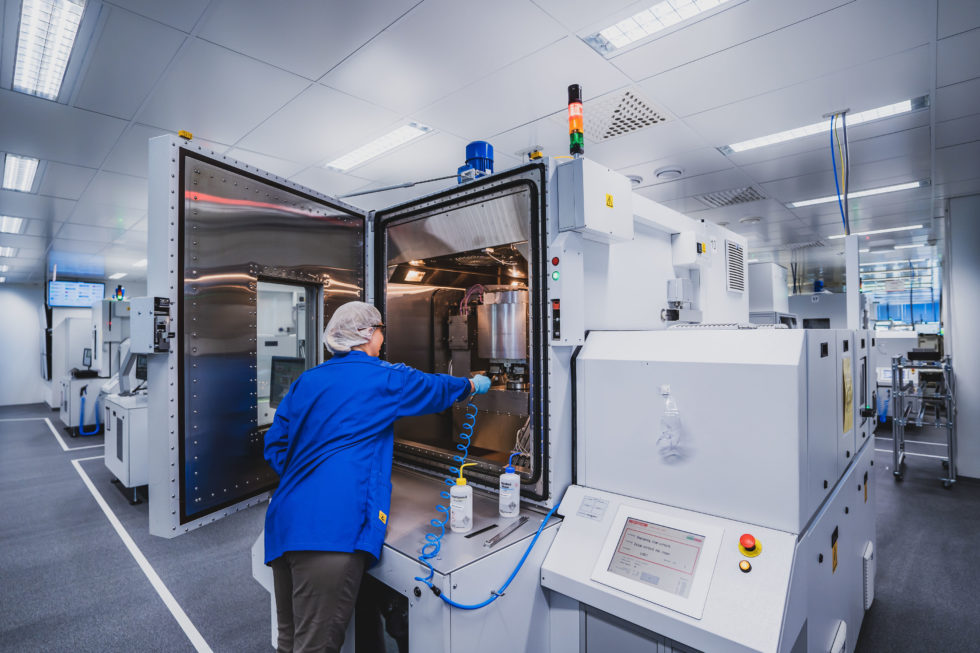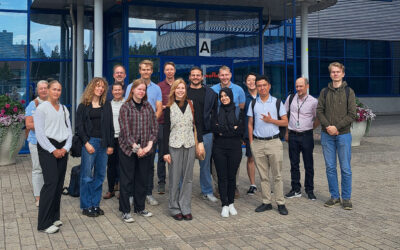Tässä hieman mietteitäni menneestä kesästä 2022 ja kesätyöstä Muratalla testauksen prosessilaatuinsinöörinä!
Tie operaattorista insinööriharjoittelijaksi
Viime kesänä työskentelin neljä kuukautta kokoonpanossa operaattorin tehtävissä arjen päivävuorossa. Talven ajaksi palasin takaisin jatkamaan sähkötekniikan DI-opintojani Aalto-yliopistossa. Tammi-helmikuussa aloitin kesätyöhakuni viime kesän innoittamana ensimmäisenä Muratan urasivulta, josta löysin muutamankin mielestäni mielenkiintoisen paikan. Samoihin aikoihin edellisen kesän esihenkilöltä tuli kutsu kesätöihin uudestaan kokoonpanon puolelle. Oli mukavaa, että tiedossa olisi varma kesätyö tuttuun paikkaan, mutta päätin kuitenkin yrittää edetä hieman ja hakea ensin uusiin työtehtäviin.
Laitoin hakemukset kahteen työtehtävään, ja näistä toisesta vastattiin hyvin nopeasti. Sain kutsun työhaastatteluun, joka oli edellisen vuoden kaltaisesti yllättävän rento ja keskittyi pikkunippelitiedon sijaan suurempiin linjoihin, kiinnostukseen ja motivaatioon. Pian haastattelun jälkeen sain iloisen puhelun: olin saanut kesätyöpaikan testauksen puolelta prosessilaatuinsinööriharjoitelijana! Virallinen työnimikkeeni tulisi siis olemaan Trainee, Process Quality (PQ).
Oli ilo huomata kuinka paljon jo kokoonpanossa operaattorina työskennellessä voi oppia muita työtehtäviä ajatellen. Antureiden rakentumisen näkeminen omin silmin auttoi valtavasti tuotetietouden kerryttämisessä, ja jälkikäteen katsottuna olen todella tyytyväinen juurikin kokoonpanokokemukseen ensimmäisenä työtehtävänä yrityksen sisällä. Vaikka testauksessa on aivan eri laitteet, sai työtehtävistä nopeasti kiinni, kun tunsi etukäteen yleispätevästi tuotteet, tuotteiden vuot ja perusperiaatteet. Työympäristö itsessäänkin on monella tavalla samankaltainen, puhdastilaluokituksia lukuun ottamatta.
Kuluneen kesän työtehtävät
Testauksen tiloissa on käytännössä kaksi eri osioita: kalibrointi ja pakkaus. Minut sijoitettiin pääasiallisesti pakkauspuolelle, eli laitteille, jotka irrottavat kunkin komponentin kokoonpanosta tulevilta freimeiltä itsenäiseksi osakseen ja pakkaavat valmiit, kalibroidut ja testatut tuotteet pakettiin lähetettäväksi asiakkaille.
Kesätyöntekijänä testauksen PQ-insinöörinä pääasiallisiin työtehtäviini kuuluivat PQ:n avustavat tehtävät: tuotannon tukeminen, työohjeiden päivitys, holdien käsittely ja esimerkiksi MSA-analyysien tekeminen tuotantolaitteille. Jatkuvien arkisten työtehtävien lisäksi sain joitain omia selvitystöitä. Kesän edetessä ja taitojen karttuessa sain lisää vastuuta, omaa selvitettävää ja projekteja. Myös oma-aloitteinen tekeminen mahdollistui paremmin, kun tiesi mistä tietoa kannattaa lähteä hakemaan ja mitä työvälineitä selvityksiin käyttää.
Aluksi tuntui, että uutta asiaa tulee niin paljon, ettei kärryillä pysyminen ole millään mahdollista – uudet laitteet, ohjelmistot, tilat… Ensimmäinen kuukausi meni lähinnä perusjuttujen opettelemiseen, moneen asiaan tarvitsi muilta paljon apua eikä eksymisiltä talon sisälläkään vältytty. Sain tehtäviin kuitenkin hyvin perehdytystä sekä esimieheltä että tiimikavereilta, mutta toki itsenäinen selvitys ja opiskelu on ollut suuressa osassa koko työskentelyn ajan.
Työssä oppii laajasti tuotannon ja laitteiden toiminnasta. Monien tilanteiden selvittämiseksi on sekä ymmärrettävä kuinka operaattorit käyttävät kutakin laitetta että tunnettava yleisellä tasolla oman alueen laitteiden rakennetta ja toimintamekanismeja. Laitteilta saatavaa dataa taas käytetään päivittäin työssä hyväksi vikatilanteiden selvittämiseksi, ja huollon kanssa tehdään tiivistä yhteistyötä.
Kesän alussa jännitti eniten joka-aamuiset klusterit, joissa käydään läpi laitteiden ja tuotannon tila ja ongelmat. Näissä vaadittiin jo ensimmäisestä työviikosta lähtien hieman muun työporukan edessä esiintymistä. Paras keino tähän oli vain tehdä itse ja yrittää – työkaverit tukivat tekemistä ja auttoivat pienimmissäkin kysymyksissä. Klustereihin tottui kuitenkin yllättävän nopeasti, ja pian ne olivat vain yksi täysin tavallinen osa työpäivää.
Parasta työssä on ollut salapoliisina toimiminen, eli vikojen ja ongelmatilanteiden juurisyiden selvittäminen sekä tilastollisin keinoin, että muilta asiasta tietäviltä kyselemällä. Omien projektien saaminen on ollut myös todella motivoivaa!
Kesän loppua kohden on koko ajan vain paremmin ymmärtänyt, kuinka paljon työstä on vielä opittavaa – se ei varmasti lopu täällä kesken!
Mitä tulevaisuudessa?
Kuluneen kesän perusteella voisin hyvin nähdä itseni jatkossa samoissa, tai saman tyylisissä työtehtävissä missä tänä kesänä olin. Työn monipuolisuus yllätti positiivisesti, eikä tylsiä päiviä ehtinyt kertymään. Omasta puolestani intoa on kyllä jatkaa Muratan leivissä, mahdollisuuksien mukaan viimeistään ensi kesän puolella sitten!
Holdien käsittely = Poikkeavaksi epäillyn materiaalin hallinta. Esim. epäily viasta tai tuotteen käsittelyssä tapahtuneesta ongelmasta.
MSA-analyysi = Measurement System Analysis. Analyysillä varmistetaan esimerkiksi tuotantolaitteen luotettavuus tuotantokäytössä, eli että mittalaitteet mittaavat oikein.
Maria Kaunisaho



